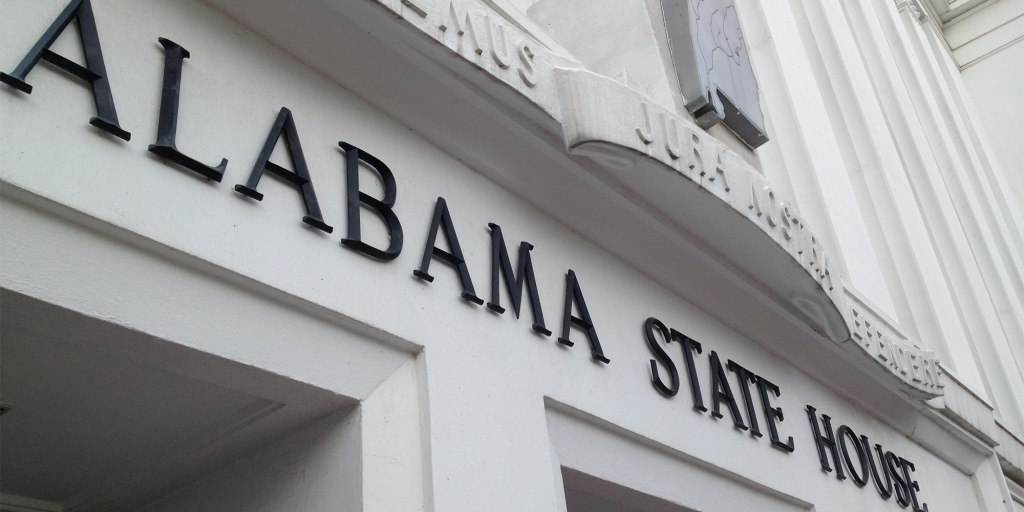No vote on gambling proposal from Senate panel

The Senate committee on tourism declined to vote Tuesday on legislation to authorize a state lottery and legalize casino-style gaming in Alabama. Last week, Sen. Del Marsh, committee chair and sponsor of Senate Bill 453, said he expected the committee to vote after Tuesday’s public hearing. Instead, the Senate panel heard extensive debate on the proposal: Eight people signed up to talk in favor of the bill, and nine asked to speak in opposition. SB 453 has been framed by bill supporters as a means for generating revenue in the state without raising taxes. Those in favor of the bill cited its potential to boost the state economy and that of the communities adjacent to casino properties. Frank Wendt, president of the Houston County Development Authority, asked the committee to consider expanding the current plan to include placing a casino in Houston County. In his testimony, he said that adding a casino in Houston County would provide $10 million in revenue to state and create more than 1,000 jobs. However, Katharine Robertson, vice president of the Alabama Policy Institute, pointed out that 20 other states have budget shortfalls even though they have state lotteries. “There is a likelihood of short-term injection in (the) fund,” Robertson said. “But in long-term (gambling) ends up being flat.” An economic impact report commissioned by Marsh’s office projected that his gambling proposal would bring up to $331 million in total revenue and add as many as 13,000 jobs in Alabama. Marsh’s proposal is one of four options lawmakers have at this point to overcome the budget shortage. Other options include adopting Gov. Robert Bentley’s plan to plug the $541 million shortfall using tax increases, approving a $250 million offer from the Poarch Creek Indians in exchange for exclusive rights to manage gaming, or allowing across-the-board budget cuts that could include the loss of up to 1,000 jobs. At a news conference last week, Marsh said that his caucus is largely in favor of the bill and his strategy of seeking a constitutional amendment so that the final decision on expanding gaming would be decided by popular vote. “I’m not hearing a lot of excitement on tax increases,” he said. “What I’m hearing from my caucus is ‘Keep this in play.’” Marsh said Tuesday that he would review comments and work to improve the bill.
Katherine G. Robertson, Caleb Crosby: Gaming a bad idea for Alabama

We have known for months that a deal was in the works to expand gambling operations in Alabama either through a lottery, a tribal compact, or privately run casinos. Such a move under Republican leadership is disheartening, but not surprising. Any chance at a money grab, be it through tax increases or gambling, is far easier than taking a scalpel to the drivers of the current budget shortfall. The General Fund woes present a very real challenge for our leaders, but the public is being fed a number of false choices as to how the problem must be solved. We should not be forced to choose which revenue generator is the least offensive. There are still plenty of good ideas and even bills on the table that would help the state do what the private sector does — scale back spending in a down year. The appeal of easy money through gambling is the idea that those tough decisions can be sidestepped, but not without repercussions. The Policy Institute’s position on using either of these tactics to generate money for the state has been well- publicized throughout our 25-year history. The success of lotteries and gambling, of course, depends upon the participation of the poor and vulnerable. The state then becomes addicted to such funding streams, politicians actually desire more, and more individuals and families recklessly spend their money that way. Calls to further expand gambling will become incessant and government will be expanded right along with it. Simultaneously, Alabama’s leaders will become owned by gaming entities whose power and influence is made possible via money lost by our state’s gamblers. Because of saturated gaming markets, the only people visiting Alabama’s casinos will be Alabamians, especially its poorest. Then local economies will be left to bear the brunt of this bad decision by state leaders. While casino gaming is being advertised as a job creator, the jobs that typically come with gambling tend to be low-wage positions that, because of falling demand, are short-lived. In the past year alone, two casinos in Mississippi have closed. In Atlantic City, N.J., four casinos have closed or will close soon, including its newest one, the $2.4 billion Revel. Thousands of workers in both states who thought that gambling would be their ticket to success have been laid off. The irony in all of this is that 20 other states face budget shortfalls. Most of their shortfalls are substantially larger than ours. Guess how many of the “shortfall states” have lotteries? All but one of them. Guess how many have casinos? 14 of them. Unless a state’s spending problems are fixed — most of which are related to Medicaid, prisons, and public pensions — new revenues can’t keep pace with the rising costs of these services or programs. For instance, Alabama’s share of Medicaid costs has doubled in the past 10 years and shows no signs of slowing down. As a result, the state’s need for more of your money through one mechanism or another will never cease to be necessary. API has proposed or supported a number of ideas that, if implemented, would help fill the budget gap. We’ve researched and recommended various cost-saving reforms to our public pensions, Medicaid prescription reform, eliminating vacant positions within state government, privatizing ABC and bidding out various nonessential government services, exploring tax amnesty to generate revenue already owed to the state, and bringing health insurance premiums of state employees more in balance with those of private-sector workers. Some of those ideas are making their way through the Legislature and some are not. All of them would be challenging to pass — they are all disfavored by one group or another — but none of them exploit the poor. Using the excuse of a budget shortfall to pave the way for more gambling is irresponsible. The effects of it would plague our state long past the political careers of those leading the charge. ••• Caleb Crosby is president and CEO and Katherine Robertson is vice president for the Alabama Policy Institute, a nonprofit research and education organization dedicated to the preservation of free markets, limited government, and strong families. If you would like to speak with the authors, please email communications@alabamapolicy.org or call (205) 870-9900. Note: This column is a copyrighted feature distributed free of charge by the Alabama Policy Institute (API). Permission to reprint in whole or in part is hereby granted, provided the author(s) and API are properly cited.


